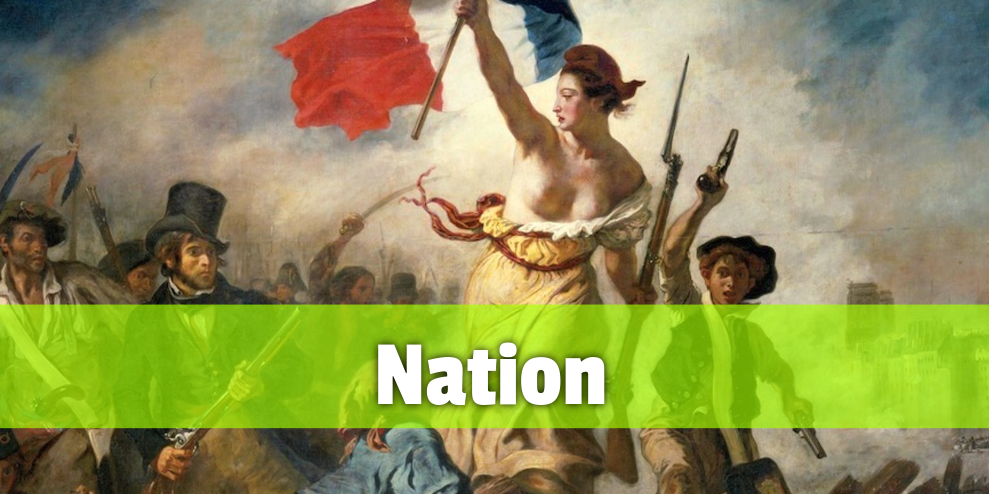Nation

Name of the social body generated by the bourgeoisie when it effectively leads the whole of society in a given territory.
From a materialist point of view the nation emerges in parallel to the constitution of a national market and is oriented towards the consolidation of the power of the bourgeoisie through a national state.
The birth of the nation
Before the bourgeois revolution and contrary to the shining hagiography that the bourgeoisie makes of itself, the nation as a social body that constituted a united people was incomprehensible. Absolutist kings had been adding regions to their domains during the ebbs and flows of the seemingly endless European dynastic conflicts, regions which in large part still retained their charters and were strictly divided into classes and groups on legal privileges. These conflicts did not follow any national logic, but rather responded to the infighting between the dynastic houses scattered throughout Europe. Sumptuary laws (restricting the type of clothing and activities in which each class could participate), linguistic variation, and feudalistic festivals continually emphasized the local particularities of the division of power in each local society.
When the death by material and productive suffocation of the old feudal mode, as well as the outlines of a new mode of production based on agrarian "improvement" and mercantilism became evident, the bourgeoisie and the burgeoning agrarian petty bourgeoisie applied themselves to the idea of "constituting" the nation from the "third estate" on the ruins of the old fractured and hierarchical society. The first European constitutions do not only establish the state, they establish the nation. They redraw the maps, create a more or less explicit "civil religion", establish flag and homeland cults, open the military career to the bourgeoisie and, to a lesser extent, to the petty bourgeoisie and sectors of the artisan trades. The detachments of national guards of the various regions who between 1789 and 1790 declared their loyalty to the French nation did not do so out of divine enlightenment, but because the cult of the nation made a mass of civil servants, military personnel and grantees of the non-nobiliary classes into its priests, something that had never existed before.
The new liberal state would be the main form of social advancement for the petty bourgeoisie and the main tool to accelerate the accumulation of the new national bourgeoisie. The national "spirit", which from Herder onwards would claim to be eternal and ancestral, was beginning to emanate strongly from its material reality: the new bourgeois state.
http://dictionary.marxismo.school/Nation